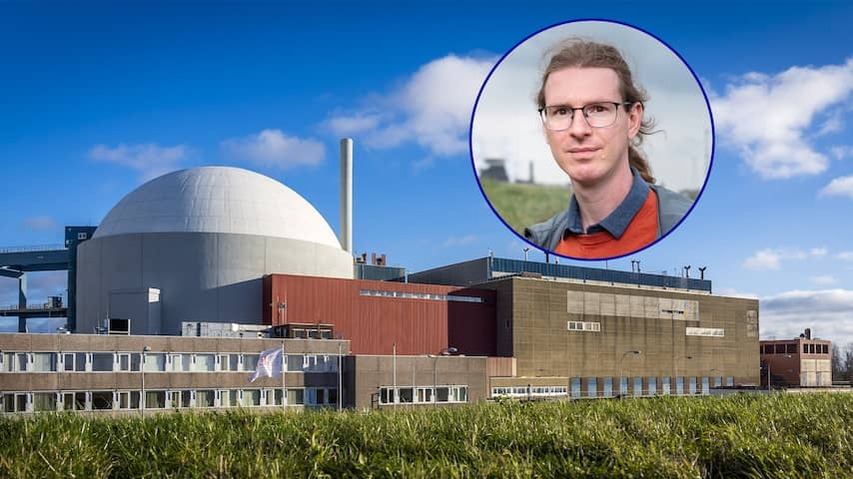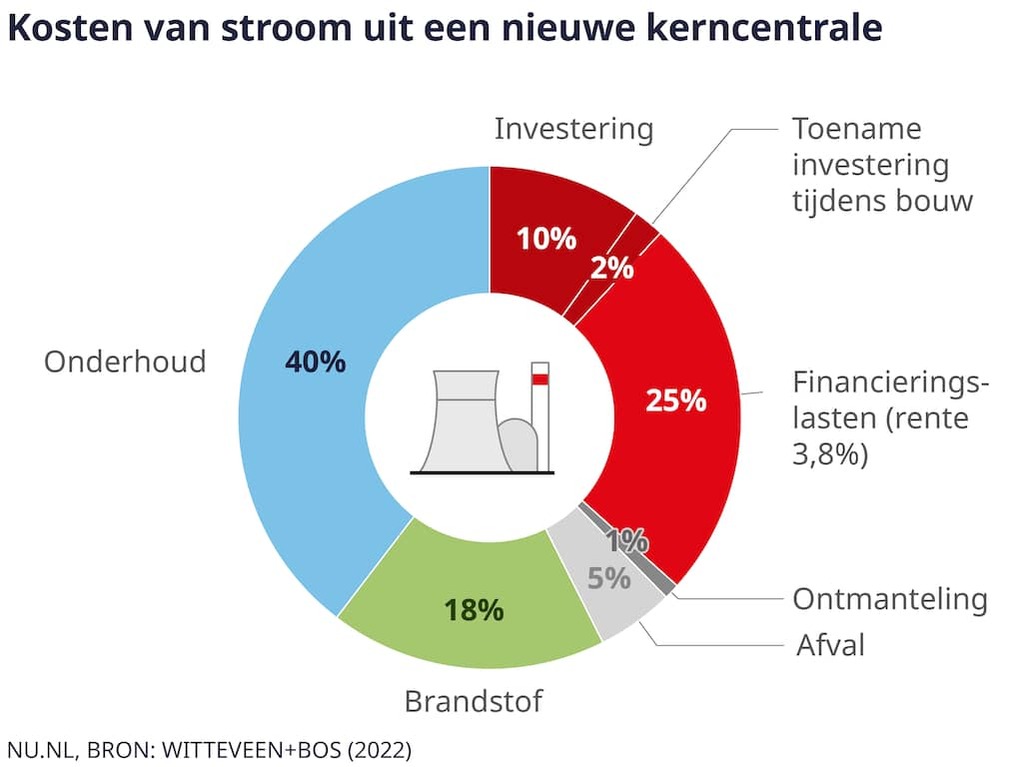
In the column, climate reporter Jeroen Kraan writes weekly about what he notices. This week: with the construction of new nuclear power plants, the government keeps making wonderful promises, after which disappointments inevitably rain down.
In the discussion about nuclear energy, there seem to be mostly staunch supporters and opponents. On the one hand, people who blindly trust that nuclear power plants will solve all our energy problems. And on the other hand, people who consider nuclear fission a fundamentally bad idea.
I myself am in between. I see the value of a power plant that can supply electricity at any time, and I think that nuclear waste is a problem that we should certainly not ignore, but it is not insurmountable.
At the same time, we must not be blind to the high costs of nuclear energy and the question of whether such inflexible power plants are useful in a system that will be dominated by solar panels, wind turbines and batteries in ten or fifteen years anyway.
This middle position fits in well with a study that was carried out 2.5 years ago. The (somewhat unsatisfactory) conclusion was that you can make the Dutch energy system more sustainable with or without nuclear power plants, and that it doesn’t matter that much in terms of costs or reliability.
This research was commissioned by the previous government, but the results seemed to matter little at the time. The conclusion had already been reached: two nuclear power plants had to be added. A number that was later adjusted to four.
Anyone who is in the race in such a way has little interest in correctly informing citizens or the House of Representatives about the gigantic complexity involved in the construction of nuclear power plants. That is why wonderful promises are constantly being made and disappointments then rain down: companies appear not to be willing to invest, finding a location appears not to be so easy, the costs turn out to be higher and construction takes longer than expected.
Cabinet Tells Incomplete Story
These problems are often denied frantically until they can no longer be denied. When I wrote last September that the construction of the first two nuclear power plants had been postponed, simply because the multi-million dollar budget showed that spending was being pushed back years, the Ministry of Climate and Green Growth was in turmoil. That conclusion could absolutely not be drawn, a spokesperson stated.
Last week, Climate Minister Sophie Hermans finally had to admit what experts have been saying for a long time: the construction of the nuclear power plants will indeed take years longer. And the reserved amount of 13.5 billion euros will certainly not be enough.
Hermans now says that the two nuclear power plants will cost 20 to 30 billion euros. But – and this is a rather important but – that is excluding financing costs. That is to say: the interest on the loans used to pay for the construction.

Now you might think: does that matter? Yes, that does matter. It is precisely these financing costs that can make the construction of nuclear power plants so pricey. During the long construction phase, interest charges continue to rise, while no income is generated from the nuclear power plant. That gets even worse if there are (almost inevitable) delays.
The energy price that the new nuclear power plants will charge will soon consist of at least a quarter of financing costs, as you can see in the pie chart. Construction costs account for 12 percent. And that is in the best case scenario, if the government finances the nuclear power plants entirely itself at a low interest rate.
“You can assume that the nuclear power plants will be a lot more expensive by the time they are ready,” says Ruut Schalij, one of the authors of the research I quoted above. “Then you’re heading towards 40 to 50 billion euros.”
Should we cancel those nuclear power plants altogether then? I wouldn’t say that either, I still see the potential benefit. But the cabinet should be open about these kinds of dilemmas, instead of sketching out beautiful prospects.